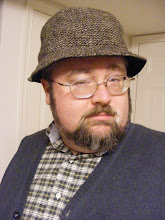1/14/2009
Poetic Theology
Today, my rector and I were formulating a plan for me to teach a special Lenten study on Christian Spiritual Classic Writers. We talked about Augustine (Hippo not Canterbury), Thomas a Kempis, John Bunyan, Dietrich Bonhoeffer, and (from the contemporary scene) Rowan Williams. I must admit my lack of familiarity of Rowan's theology except the bits I have gleaned since he's been ABC. But I have been able to gauge a bit of his spirituality. He is a deeply sensitive and grounded Anglo-Catholic. He is considered by some a "liberal," however that is construed, but most people I know and read agree he is incredibly thoughtful and definitely a voice in Anglicanism that must be grappled with. In my initial readings today, I sense he is very much a poetic soul, not simply by the fact he writes poetry. Hallmark Card writers write poetry, but most I contend are not so poetic. His is manner is more akin to a monk on Mt. Athos than an Anglican bishop. His prose contains a lyric sense of hedgerows and heaths and rocky coastal seascapes. His poetry is intensely personal, immersing his readers with him into an encapsulation of his moments of experiencing God in Holy Scripture. I hear clear reverberations of Lancelot Andrews and George Herbert in his meditations. And I am now beginning to see how this contemporary mystic will prove to be a seminal figure in spiritual theology, enough so to include him in a study of "Classic" Christian Spiritual Writers.
Subscribe to:
Post Comments (Atom)


3 comments:
As usual, I don't consider myself "qualified" to comment on your blog but... ask me at home tonight my thoughts on this post.
I really enjoy your posts. You make me think.
A contemplation of Christian spiritual writers strikes me as an inspired inclusion of Lenten observances, but I concede that my literary background has a built in bias. Did you end up including any other “contemporary” authors, or is Rowan Williams in a class by himself? I’ve been waiting for a copy of Williams’s book concerning Dostoevsky’s spiritual inspiration, but it has been taking forever to arrive. I also have both Bonhoeffer’s The Cost of Discipleship and William Griffin’s interpretation of a Kempis’s Imitation of Christ in my TBR pile, but it’ll probably be a couple of weeks before I touch them. I hope your study plans come/came together well.
I am unsure of the nature of your question. In my view, certainly there are writers that I would call "classic" who are also "contemporary." In my definition of the word "classic" as connected to Christian spirituality, I would say both breadth of influence of a work, as well as an intentional sense of grounding in a path of Christian discipleship, are key components--not merely its literary quality. Hence, while Rowan Williams perhaps as yet may not share the breadth of influence of a Thomas Merton, for example, the grounding of his work is clearly connected to a deeply Christ-centered way of life (not to mention his being an excellent writer). I hope this helps.
Post a Comment